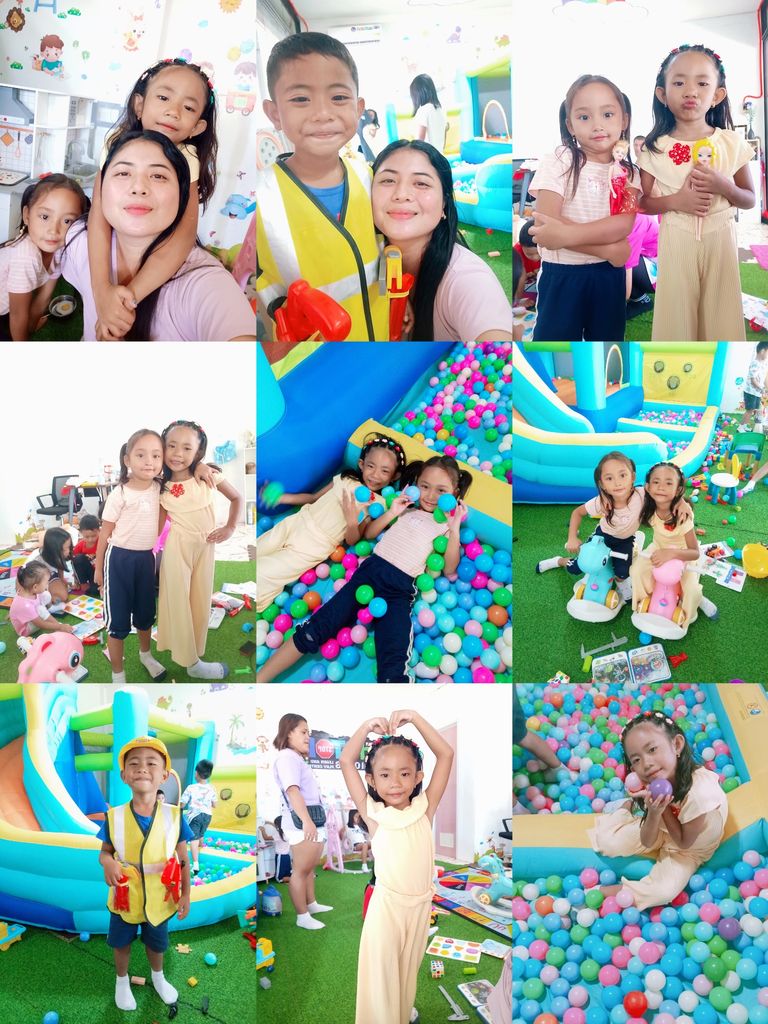When In Camotes at KIDSTOP Camotes Learn and Play Center..this is the first ever indoor playground in Camotes Island!

*Playing is a natural and enjoyable way for children to keep active, stay well and be happy. Freely chosen play helps children and young people’s healthy development. To have good physical and mental health and to learn life skills, they need various unstructured play opportunities from birth until they’re teenagers.
*Freely chosen play
Freely chosen play is when a child decides and controls their play following their own instincts, imagination and interests. They play without being led by adults.
There’s no right or wrong way to play. Freely chosen play improves children’s health, well-being and development.
Why play is important
Play improves the cognitive, physical, social, and emotional well-being of children and young people.
Through play, children learn about the world and themselves.
They also learn skills they need for study, work and relationships such as:
•confidence
•self-esteem
•resilience
•interaction
•social skills
•independence
•curiosity
•coping with challenging situations
*Developing physical health through play
Physical play such as running, skipping and riding a bicycle helps children develop:
•good physical fitness
•agility
•stamina
•co-ordination
•balance
*Developing social skills through play
Playing can help children develop their social skills with others. By listening, paying attention and sharing play experiences, this helps a child:
•explore their feelings
•develop self-discipline
•learn how to express themselves
•work out emotional aspects of life
*Playful parenting
Through play, parents can connect fully with their children and have fun.
A parent or carer can support and take part in their child’s play activities but they shouldn’t direct what happens.
It’s important they give their children time, freedom and choice to play. If an adult makes all the decisions about how, what and when their child plays, the child won’t enjoy their play experiences.
Play and challenge
Children often want to create challenge and uncertainty in their play. Through risky, challenging play, children test themselves and find out their own limits. They learn how to deal with risk through play and can use these same skills later in life.
Parents should encourage their children from birth to extend themselves. Teach them basic skills including:
•riding a bicycle
•swimming
•road safety
Explain that it’s important to learn from mistakes, to try again and to believe in themselves. Help them understand their limits and their boundaries. Allow them to have fun in their play.
*Have A Wonderful Monday To All Of Us!🤗😍
THANK YOU FOR ALWAYS SUPPORTING MY BLOGS!💖🥰
It is a pleasure for us to share our best wishes and congratulations. You have been given a virtual hug by the curation account @newvisionlife and manually curation by @OneRay.
Life never ends and there are new ways to see it. Tell us yours in our community
Es un placer para nosotros compartir nuestros mejores deseos y felicitaciones. Usted ha recibido un abrazo virtual de la cuenta de curación @newvisionlife y curado manualmente por @OneRay
La vida nunca termina y hay nuevas formas de verla. Cuéntanos la tuya en nuestra comunidad